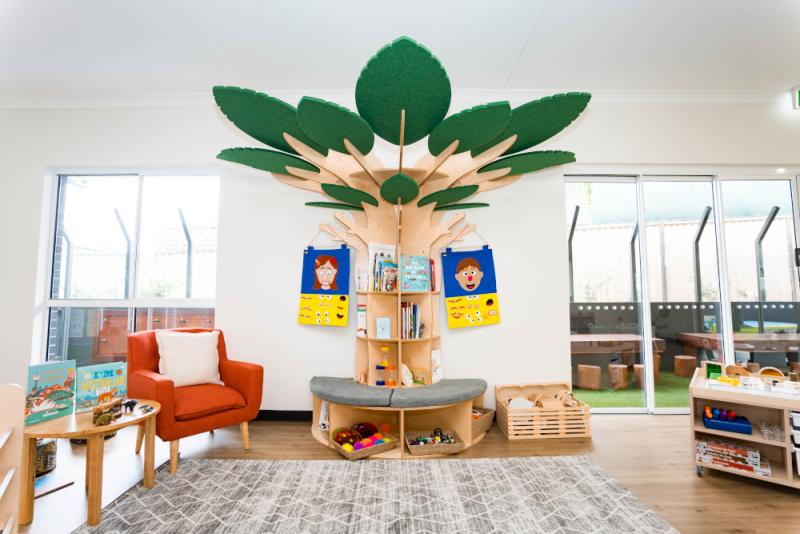How to Escape the Rat Race and Build Your Own Business

Stuck in the 9-to-5 grind? Dreaming of freedom, flexibility, and a better work-life balance? You’re not alone. In New South Wales (NSW), many people are ditching the rat race and taking control of their financial futures by building their own businesses. While it can seem daunting to make the leap from employee to entrepreneur, with the right approach and resources—many of which are offered through government support programs—you can take your business from dream to reality.
This guide will walk you through the steps to start your own business in NSW, providing practical advice and highlighting support programs that can help you along the way.

1. Develop a Winning Business Idea
The first step towards escaping the rat race is finding a business idea that is not only feasible but also excites you. Passion and commitment are essential to sustain your business in the long run, but you also need to ensure there’s demand for what you want to offer.
Steps to Find the Right Business Idea:
- Assess Your Skills and Interests: Are you a skilled mechanic? A talented baker? Or maybe you're great at digital marketing? Think about what you enjoy doing and what you’re good at, as your business should align with these areas.
- Identify a Market Need: Conduct market research to identify gaps in the market. Are there specific services or products that are lacking in your local area? NSW has diverse industries, from tourism to retail, so explore what’s in demand.
- Solve a Problem: Successful businesses often solve problems for their customers. Think about common pain points people face and whether your business idea can help address these.
Remember, you don’t need to reinvent the wheel—many profitable businesses in NSW started by simply improving an existing product or service.
2. Create a Business Plan
Once you’ve decided on your business idea, it’s time to create a business plan. This document will serve as your roadmap, outlining how you’ll take your idea from concept to fully operational.
What to Include in Your Business Plan:
- Business Overview: A brief summary of your business, what it does, and what you hope to achieve.
- Market Research: Detail your target market and competitors. Are you serving a niche, or is there already heavy competition? NSW is a large and varied state, so make sure your research reflects your specific location.
- Marketing Plan: How will you attract customers? Outline your strategy for online and offline marketing.
- Financial Projections: Your plan should include start-up costs, ongoing expenses, and revenue forecasts. Be realistic—it's better to overestimate costs than to be caught short.
The NSW government offers Business Connect, a program that provides free and low-cost business advice. A Business Connect advisor can help you create or refine your business plan, providing tailored advice to ensure you’re on the right track.
3. Register Your Business and Handle Legalities
Starting a business in NSW requires several legal and administrative steps. These are crucial to ensure your business is operating within the law and avoid future penalties.
Steps to Legally Start Your Business:
- Register for an Australian Business Number (ABN): An ABN is essential for running a business in Australia, allowing you to legally trade and comply with tax obligations. You can register for an ABN through the Australian Business Register (ABR) website.
- Register Your Business Name: If you plan to trade under a name other than your own, you’ll need to register your business name with the Australian Securities and Investments Commission (ASIC). Make sure the name is unique and reflects your business.
- Choose Your Business Structure: Decide whether you’ll operate as a sole trader, partnership, or company. Each structure has different tax, legal, and operational implications, so it’s important to choose wisely.
- Obtain Permits and Licences: Depending on the nature of your business, you may need certain permits or licences. The NSW government offers a Licence and Permit Finder tool to help you identify what you’ll need.
Consult with a business advisor, experienced and knowledgeable accountant, or lawyer to ensure your business is compliant with NSW laws and regulations and avoid any costly mistakes.
4. Secure Funding for Your Business
Starting a business often requires capital. The amount you need will depend on the type of business, but it’s important to explore funding options early on to ensure you have enough to cover start-up costs and initial operating expenses.
Ways to Fund Your Business:
- Personal Savings: Many entrepreneurs use their own savings to fund their start-up. This allows you to retain full control of the business, but it can be risky if you’re dipping into your emergency funds.
- Government Grants: The NSW government offers a variety of grants and programs to support new businesses. For example, the Jobs Plus Program provides funding and support for businesses looking to expand or invest in NSW. There are also grants available for specific industries, such as tourism, technology, and agriculture.
- Small Business Loans: Many banks and credit unions offer loans specifically for small businesses.
- Angel Investors and Venture Capital: If you have a high-growth potential business, you may attract investors who provide funding in exchange for equity.
- Crowdfunding: Platforms like GoFundMe and Kickstarter allow you to raise money for your business by offering rewards or equity to those who back your project.
Be sure to check eligibility requirements for government grants and support programs, as these can significantly reduce your financial burden in the early stages.
5. Find Support from Government Programs
The NSW and Australian governments offer a range of support programs for budding entrepreneurs. These initiatives provide not just financial assistance, but also training, advice, and mentoring, making it easier to get your business off the ground.
Key Support Programs:
- Business Connect: This NSW government service offers advice, support, and training to help small businesses succeed. Whether you’re in the planning stages or already up and running, Business Connect advisors can guide you through the process of setting up, growing, and managing your business.
- NSW Small Business Grants: This program provides financial assistance to eligible small businesses to help with start-up costs, equipment purchases, and other needs. Keep an eye on grant opportunities that align with your industry.
- Entrepreneurship Facilitators: Aimed at helping people aged 45 and over, this federal program provides mentoring and assistance to those looking to start their own business.
- Skills and Training Programs: If you need to upskill or retrain to start your business, the NSW government offers various free or subsidised training courses, including those through TAFE NSW.
These programs provide valuable resources that can save you time and money, as well as connect you with networks of like-minded business owners.
6. Market Your Business
Once your business is legally registered and you’ve secured funding, it’s time to focus on attracting customers. Marketing is critical to your success, so it’s essential to develop a strategy that will get your business noticed.
Tips for Marketing Your Business in NSW:
- Build an Online Presence: In today’s digital world, having a professional website and a strong social media presence is essential. Platforms like Facebook, Instagram, and LinkedIn are great for reaching local customers in NSW.
- Leverage Local SEO: Optimising your website for local search terms (such as “plumber in Sydney” or “café in Newcastle”) will help your business show up in Google searches.
- Use Paid Advertising: Consider Google Ads or Facebook Ads to reach a wider audience. These platforms allow you to target specific demographics, making it easier to attract your ideal customer.
- Network Locally: Attend business networking events, join local business groups, and get involved in community activities. Building relationships with other local business owners can lead to referrals and partnerships.
NSW also has numerous small business expos and markets where you can promote your products or services.
7. Stay Resilient and Flexible
Starting a business can be challenging, and it’s important to remain resilient. You may face setbacks along the way, but don’t be discouraged. Successful entrepreneurs are adaptable and willing to pivot when needed.
Tips for Staying Resilient:
- Celebrate Small Wins: Running a business is a marathon, not a sprint. Celebrate milestones, no matter how small, to keep yourself motivated.
- Learn from Failures: Every failure is an opportunity to learn. If something doesn’t work out, take the time to reflect on why and use that knowledge to improve.
- Maintain a Work-Life Balance: While starting a business often requires long hours, it’s important to take care of your health and well-being. A balanced approach will help prevent burnout and ensure your business is sustainable in the long term.
Conclusion
Escaping the rat race and starting your own business in NSW can be incredibly rewarding, offering the opportunity for financial independence, creative freedom, and a better quality of life. By developing a solid business plan, accessing government support programs, securing funding, and marketing your business effectively, you can turn your entrepreneurial dreams into reality.
Remember, there’s no need to go it alone. With government programs like Business Connect, NSW small business grants, and training opportunities, you have the resources and support you need to succeed. Now is the perfect time to take the leap and start building the business—and life—you’ve always wanted.










